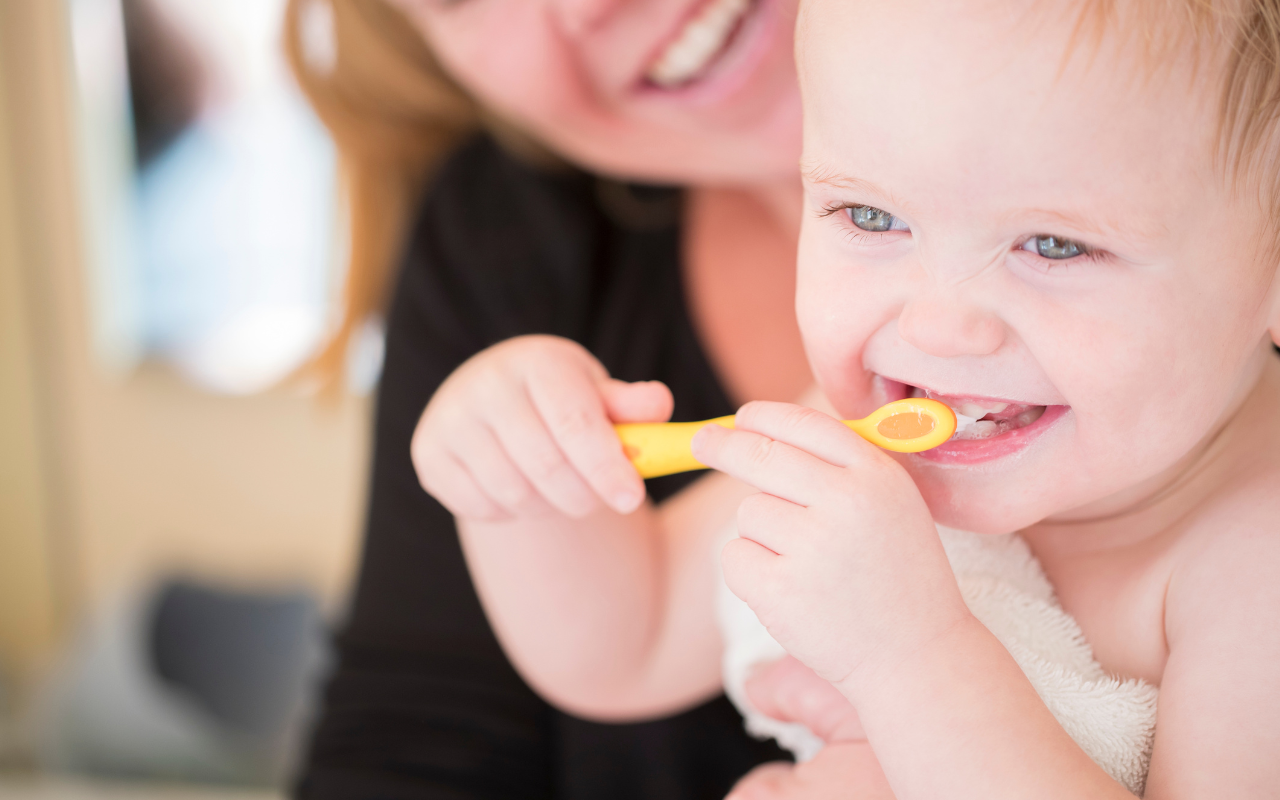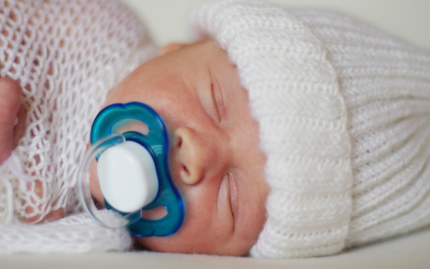Blog
Do Dummy Teeth Correct Themselves?

Dummies (or pacifiers) are a comfort item for many babies. They help little ones self-soothe, ease anxiety, and even settle more quickly at bedtime. But as helpful as they are in those early months, long-term use can lead to dental issues known as dummy teeth.
Understandably, many parents worry: “Will dummy teeth fix themselves?” The answer is – in many cases – yes. But like so many things in parenting, it’s all about timing.
Table of Contents
What Are Dummy Teeth?
Dummy teeth, also known as pacifier teeth, refer to changes in a child’s dental development caused by extended dummy use (or thumb sucking). These changes can affect the alignment of baby teeth and, eventually, permanent teeth if the habit carries on too long.
Common signs of dummy teeth include:
- An open bite – a noticeable gap between the front upper and lower teeth
- Protruding front teeth (they stick out more than usual)
- A narrow upper jaw, which may lead to a crossbite
- Changes to the shape of the roof of the mouth
- Possible speech issues (lisping or difficulty pronouncing certain sounds)
You might start noticing these changes from around age 4 to 6, as adult teeth begin to come through.
How Dummies Affect Teeth and Jaw Development
The main issue lies in the constant pressure a dummy places on your child’s developing mouth. Over time, this pressure can gently shift teeth and reshape the jaw to accommodate the dummy.
Compared to thumb sucking, dummy use is usually less damaging and much easier to manage. That’s good news! Most children outgrow their dummy earlier than they would thumb sucking – especially with a little help from parents and, say, a stylish dummy clip to keep things tidy.
But if dummy use continues past age three, that’s when changes can become more noticeable and less likely to correct on their own.
Do Dummy Teeth Correct Themselves?
Here’s the answer you’re after: yes – in many cases, dummy teeth will correct themselves, but only under the right conditions.
Natural correction is most likely when:
- Dummy use stops before age 3
- The changes affect only baby teeth
- The issue is mild and caught early
Dental experts agree that “if dummy use stops before age 3, the teeth usually move back into place on their own as your child grows” .
How long does it take? You may start seeing improvement within 3 to 6 months after stopping dummy use – especially if your child is still in the early stages of dental development.
When Dummy Teeth Don’t Fix Themselves
Unfortunately, self-correction becomes less likely when:
- Dummy use continues beyond age 4
- Permanent teeth are already starting to come through
- There’s severe misalignment like a deep open bite or jaw malformation
- The habit sticks around past age 7
In these cases, a dentist or orthodontist may recommend treatment such as braces, clear aligners, or other early interventions.
What Affects Whether Dummy Teeth Will Fix Themselves?
Let’s break down the key factors:
1. Age When Dummy Use Stops
This is the most important one.
- Before age 2 – Great chance of full self-correction
- Ages 2–3 – Still a strong chance of improvement
- Ages 3–4 – Partial correction possible
- After age 4 – Much less likely without help
2. Severity of the Dental Issues
- Mild cases (like small gaps or slightly forward teeth) often fix themselves
- Moderate issues might partially improve
- Severe misalignments (such as major crossbites or jaw shifts) usually need a professional
3. Type of Misalignment
- Open bites often self-correct, especially if dummy use stops early
- Narrowed palates may require treatment
- Protruding teeth sometimes need orthodontic support
When to See a Dentist
Even if you’re hopeful for self-correction, there are some clear signs that it’s time to get professional advice:
- Dummy use continues beyond age 4
- Your child has trouble chewing, speaking, or feels self-conscious
- You see no improvement several months after ditching the dummy
- There’s discomfort or visible changes to their bite
Most dental issues are easiest to fix early, so regular check-ups from age one are a great idea.
How to Fix Dummy Teeth (If They Don’t Correct Naturally)
For Children:
- Early orthodontics – Help guide proper jaw growth
- Habit-breaking devices – Encourage your child to stop sucking
- Space maintainers – Keep things in place while waiting for adult teeth
For Adults with Dummy Teeth
Still seeing the effects as a grown-up? You’re not alone, and modern dentistry can help:
- Braces – Still one of the most effective options
- Clear aligners (like Invisalign) – Great for mild to moderate cases
- Lingual braces – Braces behind the teeth, so no one sees them
- Veneers – Cosmetic fix for minor imperfections
Top Tips to Prevent Dummy Teeth
Prevention is always better than cure! Try these strategies:
- Use the dummy for naps and comfort, not all-day use
- Begin weaning around 6–12 months
- Aim to stop by age 2–3 to allow self-correction
- Avoid dipping dummies in sweet substances
- Use orthodontic-style dummies when possible
- Keep up with regular dental check-ups
Need help transitioning away from the dummy? Try a personalised dummy clip to make the weaning journey easier – and cuter!
Final Thoughts: Can Dummy Teeth Fix Themselves?
Yes – dummy teeth can often correct themselves, especially when dummy use stops early (ideally before age 3). In many cases, you don’t need to panic. Nature does a great job of realigning things as your child grows.
That said, not every case sorts itself out, particularly when permanent teeth are involved. Keeping an eye on your child’s dental development – and working with a dentist if needed – will make all the difference.
The key takeaway? It’s all about timing. So if you’re ready to start weaning off the dummy, you’re already on the right track. 💛



